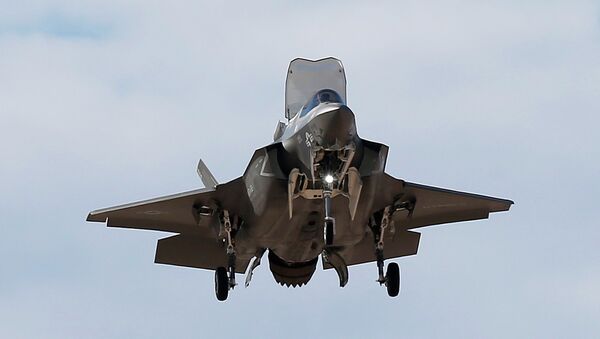The root of the problem involves “maintenance codes not being reflected properly in the system,” the Marine Corps statement noted.
Thankfully, “there is nothing wrong with the performance or safety of the aircraft itself,” the Marines said in a statement to Breaking Defense. Mysteriously, F-35Bs in Yuma, Arizona, are the only F-35 units to experience the issue. Joint strike fighter jets in Iwakuni, Japan, for instance, have not been impacted, according to Breaking Defense.
The anomalies created a new job for systems engineers and Lockheed Martin consultants, who were dispatched to investigate the F-35B’s ALIS issue. The F-35 Joint Program Office has been busy lately. Two weeks ago, the US Air Force grounded 55 F-35A variants because pilots experienced oxygen poisoning mid-flight. The problem remains unresolved, but the F-35As are back in the air anyway. One hope is that a new sensor made by UK contractor Cobham PLC will get to the underlying factors causing hypoxic episodes.
But the Marines have a different issue. “It is imperative that we ensure the ground-based ALIS system is working properly before flight operations continue,” the Marine Corp said.
ALIS is a complex software algorithm that is supposed to incorporate “smart” self-monitoring to let maintenance crews know which parts of the plane might need repairs and order parts before malfunctions occur. The irony that the diagnostic system has itself been pinpointed as the issue causing the planes to cease operations is difficult to ignore.
The F-35 is the only US plane to use ALIS software, and the disruption in the software is believed to have been triggered by a software upgrade. Again, the irony of an “upgrade” going awry and causing the jets to sit on the ground is delicious.
"I was concerned to learn that the Marine Corps has suspended F-35B operations at MCAS Yuma due to problems with the aircraft’s Autonomic Logistics Information System," Arizona Senator John McCain stated on Thursday, according to a Spuntik report.




